Russian ministry of internal affairs to regional governors: strict deportation of illegal migrants to begin on May 1
The ministry is preparing inspections of illegal foreign workers for expulsion from the country
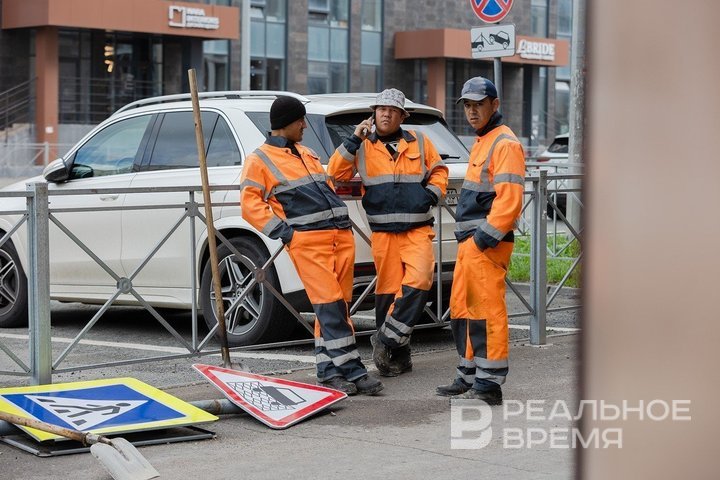
“I don't want to make raids or create a stir in interstate relations, but we have a legal requirement," First Deputy Minister of Internal Affairs Alexander Gorovoy warned about the upcoming deportation of all foreigners illegally staying in Russia. Until this x-hour, migrants still have a chance to legitimise their stay, but voluntary registration is slow in the Volga Federal District — 1,500 applicants in total, he complained at a meeting of the heads of the Volga Federal District regions on migration policy in Kazan. The Ministry of Internal Affairs of the Russian Federation is against the ban and quotas on attracting foreign labour, but insists on their unconditional legalisation. Read the details in the material of Realnoe Vremya.
Half a million migrants work in the Volga region
The year 2025 may be the harshest year for illegal migrants who came to work in Russia. The Ministry of Internal Affairs of the Russian Federation has announced an irreconcilable organised struggle against their stay in the country. As First Deputy Minister of Internal Affairs of the Russian Federation Alexander Gorovoy reported at a meeting of the heads of the Volga Federal District regions on migration policy in Kazan on 25 March, about 650,000 foreign citizens are illegally in the country, and, as follows from his speech, about a quarter of them come from the regions of the Volga Federal District. For example, 500,000 foreign workers live in the Volga region, but only 330,000 citizens in the Volga Federal District received employment notices from the tax inspectorate, he said. Labour migrants make up 1.8% of the total population of the Volga region. Most of them are from Uzbekistan, Tajikistan, Kyrgyzstan, and Kazakhstan.
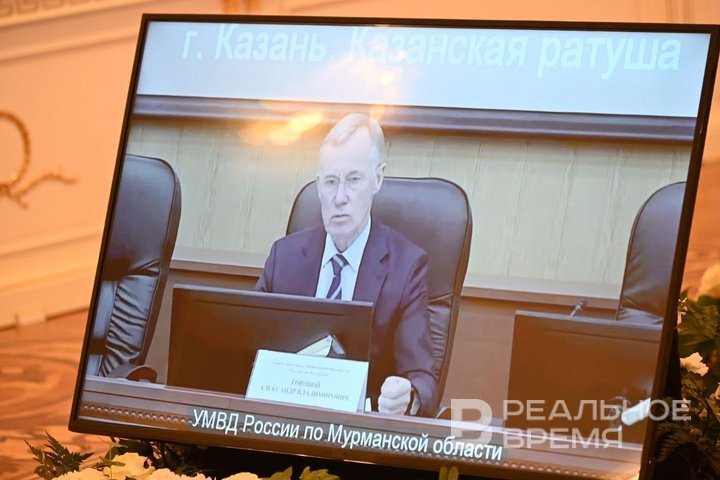
Considering that a migrant receives a work permit in the Russian Federation for a period of one year or less and then goes back to his homeland, the “turnover” is large. According to the ministry of internal affairs of the Russian Federation, last year, foreign citizens registered for migration in the regions of the Volga Federal District 1.5 million times, of which almost 40% were extended.
Police officers — in the last row
Interestingly, there have been twice as many illegal migrants in a year, not only because of the shortage of personnel in the country. The reason is that the Russian language proficiency exams have been tightened. “Exactly one year ago, on March 25, 2024, at the command of the Ministry of Internal Affairs of Russia, police officers were placed in the last row at all exam reception points," said Alexander Gorovoy. “They have started to monitor the process of passing exams in the Russian language.”
As a result, many did not pass and failed to get a work permit. “They remain in the Russian Federation, but they go into the shadows," explained the major general of the ministry of internal affairs of Russia.
Interestingly, previously, only 13 higher education institutions were granted the right to take exams, but they could not cope with the entire flow. They were subcontracted by private organisations. But during 2023, the security forces restored order... As of March 1 of this year, there were 6.7 million foreign citizens in the country. The increase was 7.3%. The majority, about 90% of foreign citizens, legally reside in the country today.
But foreign labour is a good help for enterprises in conditions of personnel shortage, said Igor Komarov, the presidential envoy to the Volga Federal District: “By attracting foreign workers, it is possible to partially compensate for the shortage in the labour market. Since 2019, almost 950,000 patents have been granted in the regions of the district. This allowed the budgets of the Volga Federal District regions to receive more than 34 billion rubles during this time. In 2023 and 2024, revenues exceeded 9 billion rubles.”
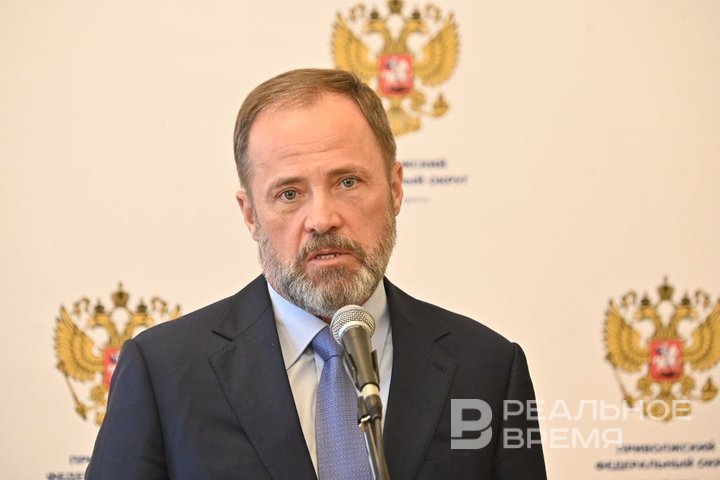
Tatarstan, Samara and Orenburg regions love migrants
The most attractive regions for hiring are Tatarstan, Samara, Orenburg and Nizhny Novgorod regions. But this is where the largest number of illegal migrants and their family members may be hiding. According to estimates by the Ministry of Internal Affairs of the Russian Federation, 118,000 foreign women and over 60,000 minors reside illegally in the Volga Federal District — they ended up in the “gray zone” as unemployed wives and children, since they are not officially listed anywhere, Alexander Gorovoy noted.
“Starting from May 1, harsh measures will begin in the country to expel people who are illegally in the country. Of the 650,000, half are women and minors who entered under previous agreements. Of course, I don't want to make raids or create a stir in interstate relations, but we have a requirement of the law that we must comply with," he addressed the heads of the regions of the Volga Federal District.
At the same time, he recalled that since February, an “amnesty” had been in effect in the country — migrants illegally in the country could apply for inclusion in the register of controlled persons. Until April 30, they were given the opportunity to legitimise their stay, but this process was slow.
“It's not going well, only 16,000 foreign citizens have applied,” Alexander Gorovoy complained. “And the advertisement passed, but the Volga Federal District received about 1,500 applications.”
Currently, 46,000 people are listed in the register of controlled entities. Of these, over 9,000 are in Tatarstan, 10,000 in the Orenburg region, and about 4,000 in the Nizhny Novgorod region.
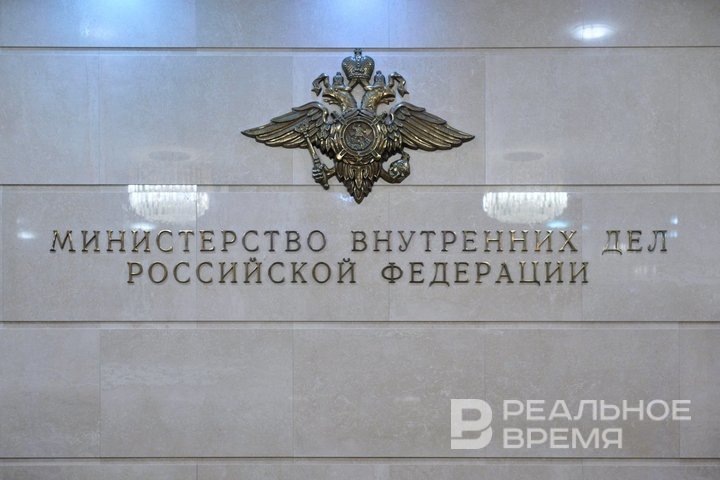
The Ministry of Internal Affairs of Russia is concerned about the increase in crime among migrants. “Over the past 3 years, we have been recording a decrease in crime, but now the trend has begun to change, the number of crimes committed has increased. There is a 25% increase in serious crimes," Gorovoy noted. According to him, the increase in crimes is observed in Mordovia (39 times), Nizhny Novgorod region (2.2 times), Tatarstan (one and a half times), Saratov region (2 times).
The number of crimes related to drug trafficking has doubled, the deputy minister of internal affairs said: “Illegal migrants committed 4 times more crimes in the Volga Federal District in 2024 than in 2023. The number of drug crimes has increased tenfold.”
Kazan will open a border crossing point at the airport
The ministry of internal affairs controls the movement of foreigners as part of a federal experiment, and Kazan is preparing to join it. “Biometric data is taken from every foreigner at the three airports of the Moscow air hub and at the Mashtakovo automobile checkpoint in the Orenburg region. Last week, the issue of a phased expansion of the border crossing point was raised. The issue of the priority commissioning of a point in Kazan is currently being considered," Alexander Gorovoy said.
At the same time, the first deputy minister of internal affairs of Russia spoke negatively about the introduction of a ban on foreign labour. “It won't lead to anything," he said. “For the first time since 1991, Kyrgyz citizens came in second place after Uzbekistan, ahead of Tajikistan. Because bans on certain types were adopted, and the countries of the Eurasian Economic Union do not fall under the requirements of this law, they are being replaced by Armenians and Kazakhs.”
He is also not satisfied with the quota mechanism for foreign labour from visa-eligible countries. “Quotas have been selected by 54%, and the procedure is difficult, approved by a decree of the government of the Russian Federation. For three years we have been seeking the abolition of quotas for visa-free countries, from which qualified specialists are attracted. Our initiative is to cancel exams for those who are involved in work activities. Last week, the bill was considered by the State Duma's Migration Policy Council, and the proposal was supported," he said.
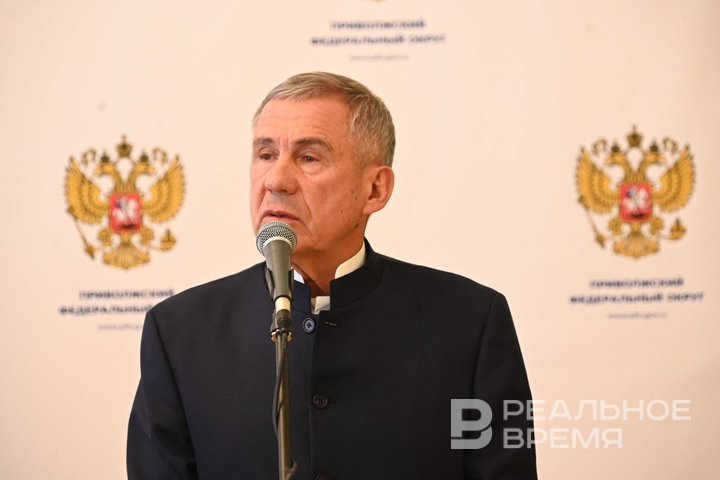
“We clearly understand that without attracting migrants, we cannot solve the problems that our economy faces today,” Rustam Minnikhanov concluded. “A number of enterprises in the republic have developed good practice in socialising and adapting the incoming workforce. At the same time, all this should be systematised. We need mechanisms that allow migrants to adapt and gain good qualifications. KAMAZ and the Alabuga SEZ have gained good experience in targeted recruitment, recruitment and training of personnel, and further socialisation of foreign citizens. We are closely cooperating with the leadership of friendly countries on this issue. This systematic work will continue.”